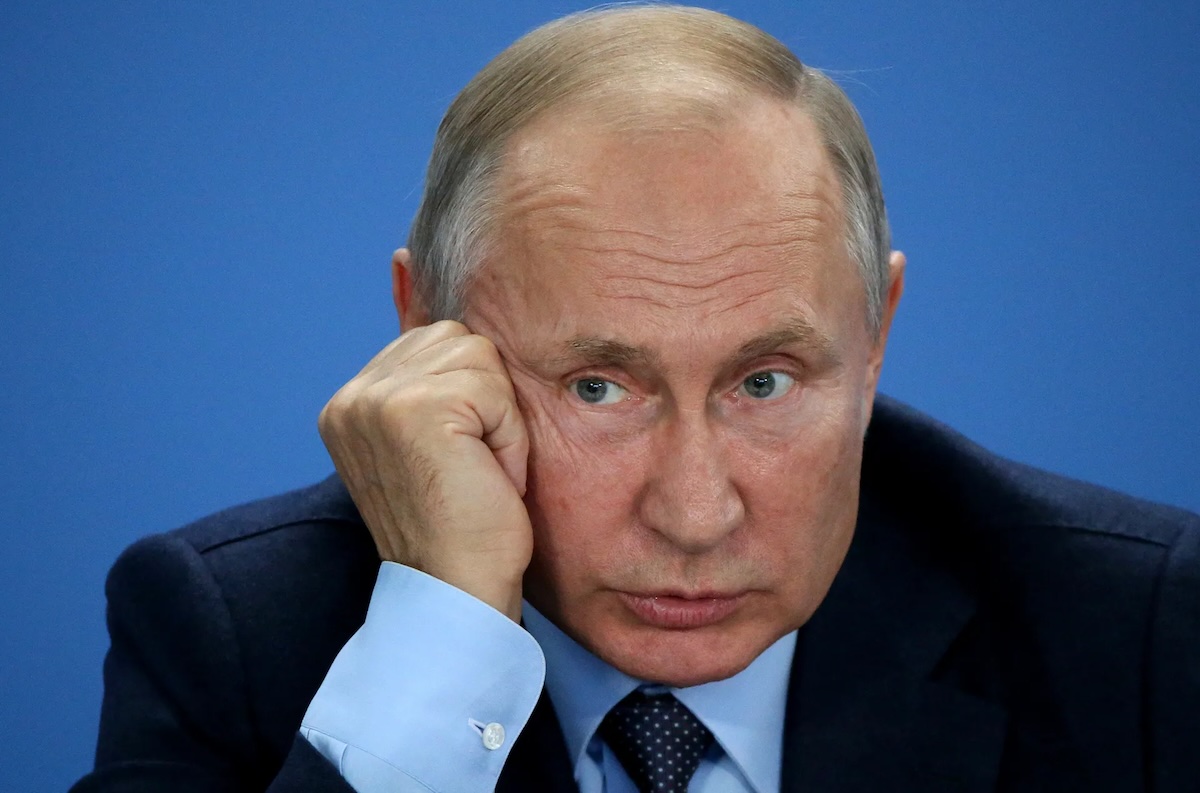
In anti-establishment circles in the West, Russian President Vladimir Putin is widely portrayed as a defender of Christianity and traditional values. His policies, particularly regarding migration, do not seem significantly different from those implemented by the Western liberal elite.
By Nikola Mikovic
Although the Kremlin is often accused of funding far-right and nationalist movements in the West, Putin himself is not a Russian nationalist. Since coming to power in 2000, he has consistently pursued a policy of so-called multinationalism—the Russian equivalent of Western multiculturalism. While the names differ, the underlying idea is essentially the same.
It is, therefore, no surprise that in 2003, Putin referred to those chanting “Russia for (ethnic) Russians” as “fools and provocateurs.” In March 2024, he stated that the policy of “Russia only for ethnic Russians” can lead to the breakup of the Russian Federation.
Even the Russian Orthodox Church – widely seen as the Kremlin’s long arm – seems to share Putin’s view on Russian nationalism.
“Let no one scare us with Russian nationalism. Russian nationalism doesn’t exist. Everyone knows that,” Russian Patriarch Kirill said on March 27, 2024, following the Crocus City Hall terrorist attack that is attributed to Tajik migrants.
As a result of the attack, anti-migrant sentiment in Russia skyrocketed. Ever since, law enforcement has been conducting raids across the country to locate and detain illegal migrants. It is estimated that there are at least 670,000 people residing in the country illegally. Why has the Kremlin turned a blind eye to this problem for decades?
Numerous incidents – whether in schools, public transportation, or on the streets – between migrants and ethnic Russians have forced the authorities in Russia to take measures that would, at least to some extent, reduce tensions in society. According to State Duma Speaker Vyacheslav Volodin, the Russian Parliament has initiated and passed 15 laws related to combating illegal migration since 2024.
Despite this, reports suggest that the number of crimes committed by illegal migrants has tripled in 2024 compared to 2023. The Kremlin seems to be taking PR stunts and half-measures aimed at creating the illusion that it is resolving the migrant issue. As a result, large segments of Russian society, including groups linked to the Kremlin, blame the authorities for what they describe as an uncontrolled migration.
The problem is that Russia’s economy heavily depends on labour migrants. In 2023, Russia was estimated to be short some 4.8 million workers. That is why Moscow cannot simply expel millions of migrants, even though it has reportedly launched a wave of repression against some of them.
It is also an open secret that Russia’s Defence Ministry is forcibly recruiting labour migrants – both legal and illegal – offering them the chance to fight in Ukraine in exchange for Russian citizenship. Unwilling to die for Putin’s unclear goals in the Eastern European country, many migrants from Central Asia have begun leaving the Russian Federation. That is why Moscow is reportedly attempting to attract migrants from Africa, Latin America, and Southeast Asia.
There are also voices in Russia calling on the Kremlin to “stop non-Russian migration from Central Asia,” and instead attract “millions of highly qualified cadres, presumably from the West or from among Russian expatriates.”
However, reports indicate that the Kremlin is creating bureaucratic obstacles for the few Westerners who, driven by the narrative of Russia as a “bastion of conservatism,” are willing to move to the country.
More importantly, around one million young, educated Russians have fled the country since 2022, when Putin launched the invasion of Ukraine, and they are unlikely to return to their homeland until he remains in power.
Therefore, the Kremlin does not have much choice but to continue bringing labour migrants to Russia, be they from Central Asia, the South Caucasus, or elsewhere. At the same time, it likely seeks to strike a balance between its ideology of multinationalism and the growing demands to prevent labour migrants from bringing their families to Russia and to ban the niqab in the country.
Unwilling to make any radical moves, Russian policymakers tolerate Central Asian women wearing niqab in Russia, even though the practice is banned in their home countries. Also, at this point, there does not seem to be a political will in the Kremlin to restrict the right of migrant workers to bring their families into the Russian Federation.
However, to discourage migrants from doing so, Moscow has taken a tough stance on the enrolment of migrant children in schools, barring access to those who fail a Russian language test and potentially deporting their families.
These measures, however, are unlikely to resolve Russia’s problem and successfully integrate labour migrants into Russian society. Therefore, Russia will almost certainly continue down a path that many European countries have followed for decades. Migration, in one form or another, will persist.





